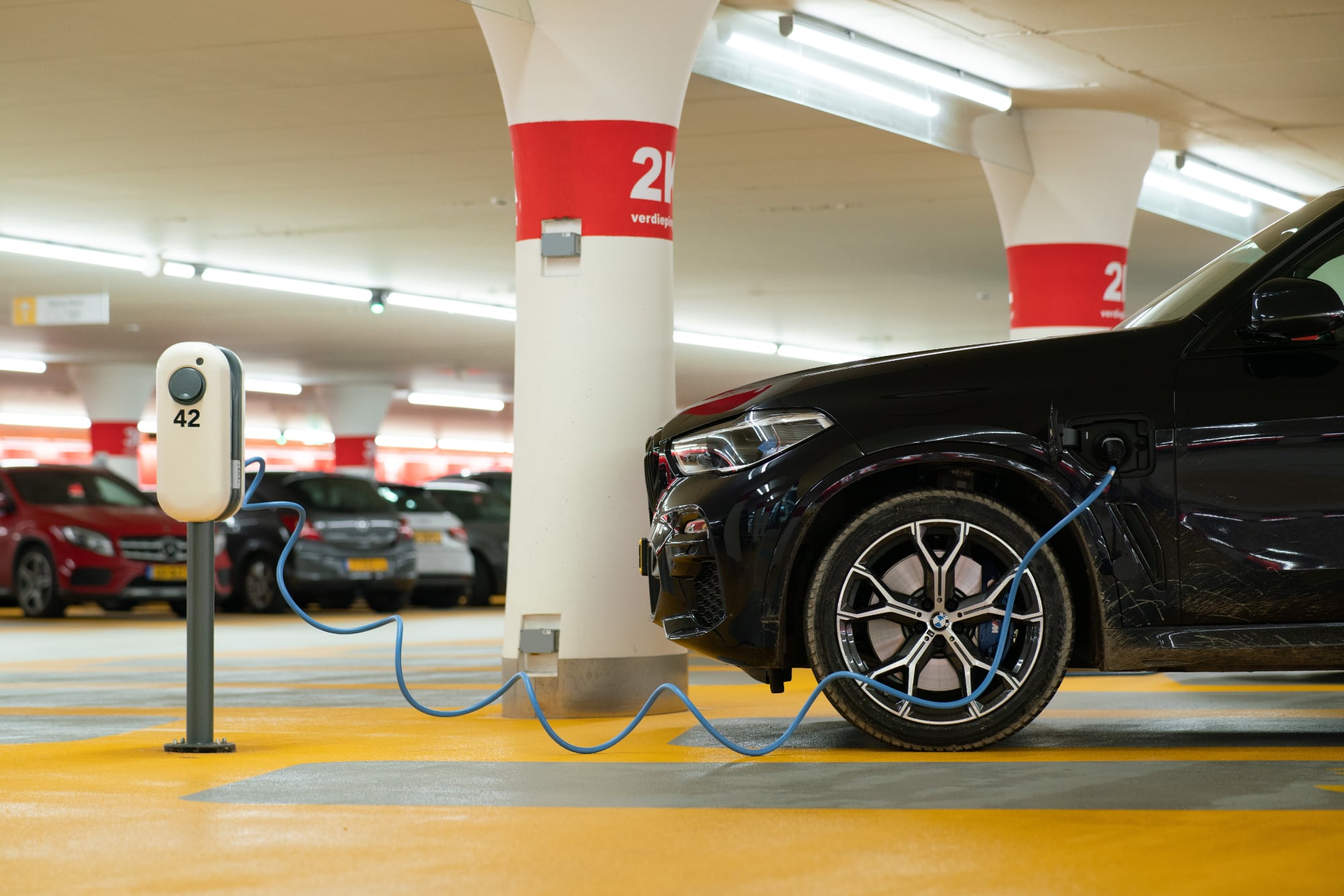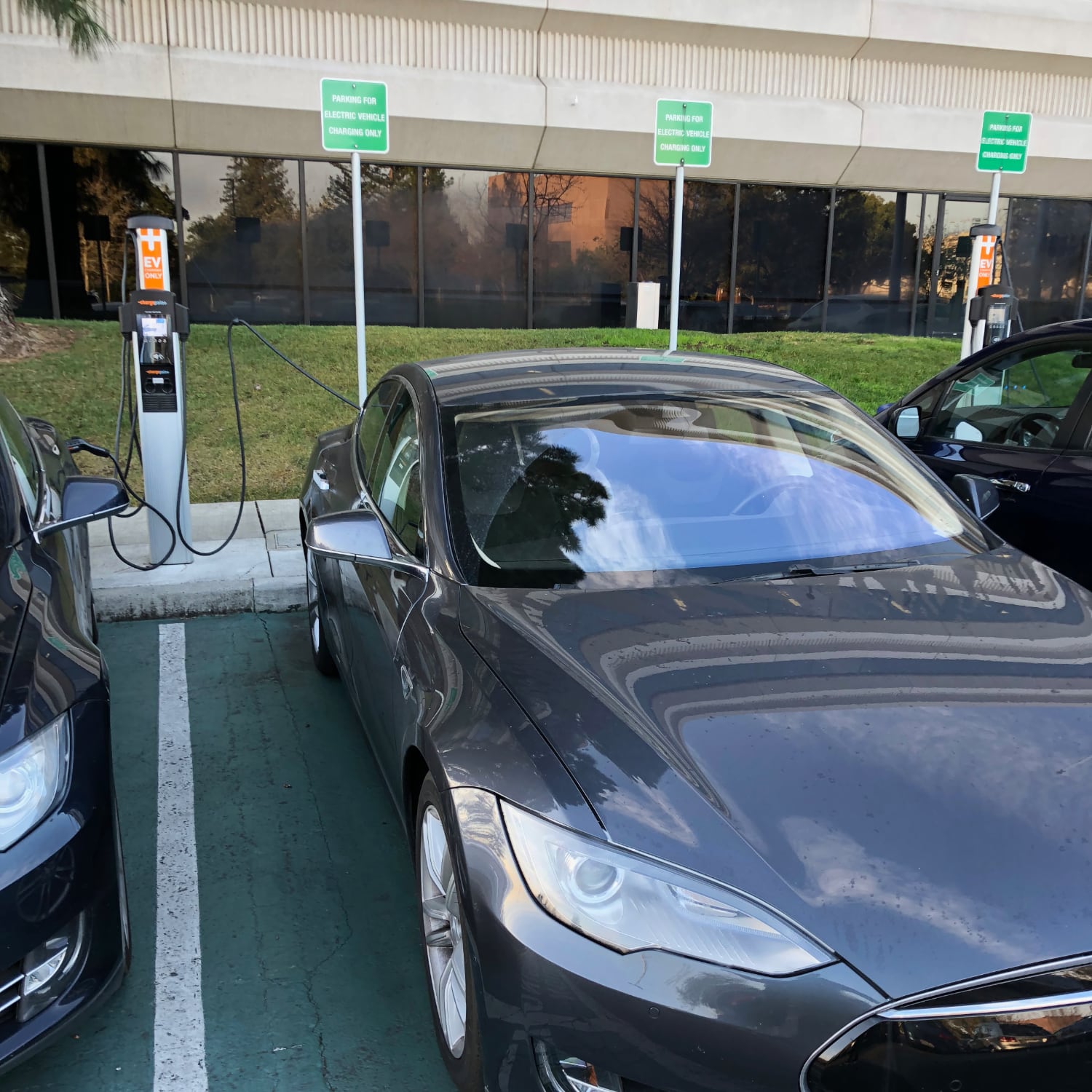With EV chargers for employees, companies can accelerate zero-carbon transportation

Addressing climate change is a challenge that needs to be tackled at all fronts: countries, cities, and households, but also businesses. Luckily an increasing number of companies commit to net-zero targets. They employ various ways to reach these goals from decarbonising their supply chains to compensation.
However, one often overlooked way to have an impact is to accelerate decarbonisation of transportation, in particular employee commutes. The car remains the primary means of commuting in Europe, with about 60%-70% of employees relying on them. Commutes are also the primary driver of transportation and attempts to transition commuters to other means of transport have had some, but ultimately limited success.
Hence, an important strategy for how employers can help decarbonize commutes is to encourage people to switch to electric vehicles: about 15% of total GHG emissions in the EU are from transport (11% globally), and about half of that from cars.
Looking at the top reasons why consumers have not yet purchased an electric vehicle, limited charging options are consistently ranked in the top 3 reasons (example surveys from UK, DE, CH).
The lack of charging options covers public charging, home charging, and charging at work. Considering that many respondents likely overestimate the need for public charging stations, but underestimate the convenience of charging at home or at work, offering charging options at home and work becomes even more relevant.
For many commuters installing a charger at home is currently simply not possible or rather inconvenient:
- They may rent
- They may have only streetside parking
- They may live in a multi-family home with limited options for installation
While solutions will become available for all these scenarios, being able to charge at work can enable commuters to switch to electric vehicles sooner, and accelerate transition to sustainable transportation overall.
The author experienced this first-hand while working for tech companies in Silicon Valley. Already in 2016 all the big tech companies had charging stations at all their larger offices (the lack of these was initially a topic back in 2013, almost 10 years ago!)
After initially charging also at home, I switched to charging at work only. Simply because charging at home was not needed anymore.

Charging while parked at work, also aligns nicely with the availability of low-carbon solar electricity during the daytime. Companies can go even further by installing solar directly on their office buildings to feed not only their buildings but also the charging stations. Last but not least, companies may be able to use the charging infrastructure to decarbonize their own fleet by switching to electric.
Of course, the installation is an investment. But we’d argue the impact is more significant and long lasting than e.g. reaching net-zero targets mainly through compensation. After all, science-based targets tell us to focus on reducing emissions, before removal or compensation.
So, if you’re an employer we encourage you to install charging stations for employees. Maybe start with just one or two, and observe the impact. If you’re an employee: maybe talk to your employer about charging options, if the lack of these has been a reason not to go electric for your commute.